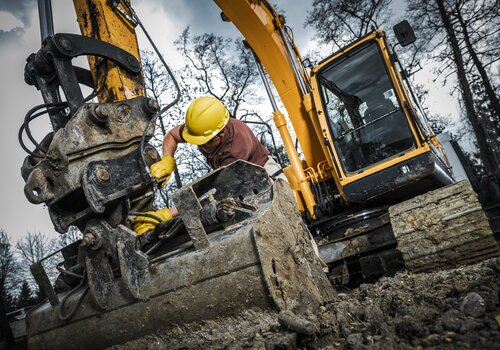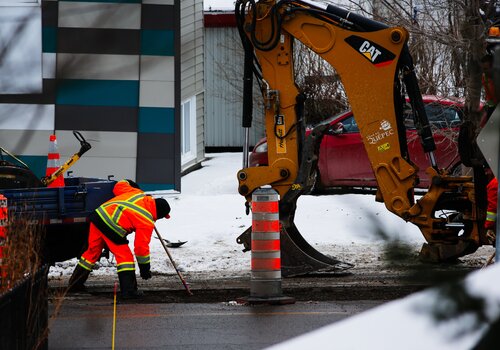Recognizing the impact of weather conditions on construction projects at the start of a new year is the best time to prepare your team for the unexpected. Contractors should aim to educate and empower all professionals in the construction industry by enhancing safety, productivity and project resilience in adverse weather conditions.
UNDERSTANDING THE SIGNIFICANCE
Discussing inclement weather awareness in January serves as a timely reminder for the construction sector to prioritize safety and efficiency during unpredictable weather patterns. Construction faces many disruptions caused by extreme weather events, such as heavy rain, snow, storms or extreme temperatures. These factors can lead to project delays, increased risks and additional costs.
Fortunately, there are steps to take to minimize danger on your site during inclement weather:
- Safety Protocols: Implementing comprehensive safety protocols is paramount in the construction industry, especially at the beginning of a new year. This includes conducting regular safety training sessions, providing appropriate personal protective equipment (PPE) and establishing emergency response plans tailored to different weather scenarios.
- Equipment Maintenance and Preparation: Large equipment manufacturers and operators play a vital role in ensuring the readiness of machinery for adverse weather conditions. Regular maintenance checks, equipment inspections and the use of weather-resistant materials contribute to the longevity and reliability of construction equipment.
- Project Planning and Flexibility: Construction projects should be meticulously planned, considering the potential impact of inclement weather. Building flexibility into project timelines, anticipating weather-related delays and having contingency plans in place can help mitigate risks and minimize disruptions.
- Communication and Coordination: Effective communication is vital among all stakeholders in the construction process. Contractors, project managers and equipment operators should maintain open lines of communication to relay real-time information about changing weather conditions, allowing for swift decision-making.
FINAL THOUGHTS
Don’t wait to create an inclement weather policy, which serves as a catalyst for fostering a culture of safety, resilience and adaptability within the construction industry. By acknowledging the challenges posed by adverse weather and adopting proactive measures, contractors can enhance project outcomes, protect the well-being of workers and contribute to the overall sustainability of the industry.
As the industry continues to evolve, staying informed about the latest safety guidelines, weather forecasting technologies and best practices remains essential. By leveraging the available resources and incorporating weather-aware strategies, construction professionals can build a foundation for success even in the face of unpredictable weather events.
Photo credit: AIKON/BIGTSTOCKPHOTO.COM












